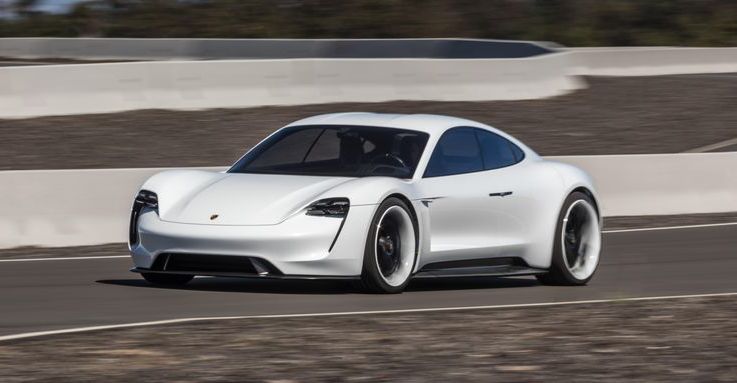
Porsche dubs the Taycan, formerly known as the Mission E sedan, as one of its most important vehicles since the iconic Porsche 911. The upcoming all-electric, high-performance luxury sedan is expected to compete with some of the electric vehicle market’s most formidable mainstays, such as the Tesla Model S. With a drive unit developed from Porsche’s racing pedigree and battery tech that enables ultra-high-speed charging, the Taycan is set to make an impact when it starts production next year.
The auto market is starting a shift towards electric mobility, and the Taycan will be Porsche’s flag bearer for the next few years. By 2025, the legacy automaker is aiming for “every second Porsche sold to have an electric drive unit,” meaning half of its offerings would be fully electric and the other half will be plug-in hybrids. The Taycan is projected to hit a production rate of 20,000 vehicles per year, translating to roughly 67% of the current sales figures of the Porsche 911.
The Taycan is equipped with two permanently excited synchronous motors (PSM) that produce a combined 600 hp (440 kW). Porsche’s PSM motors were used by the company in the 919 Hybrid, a sports-prototype racing car that won the 24 Hours of Le Mans in the event’s Prototype-1 Hybrid (LMP1-H) category. The carmaker states that PSM electric motors are the “turbos of the electric motor milieu,” considering their capability to boast high sustained performance while maintaining maximum efficiency. Naser Abu Daqqa, director of electric drive systems at Porsche, described one of the strategies employed by the company to maximize the performance of the Taycan’s electric motors.
“The coils are made of wires that aren’t round, but rather rectangular. This makes it possible to pack the wires more tightly and get more copper into the coil machines—increasing power and torque with the same volume,” Abu Daqqa said.
Porsche’s battery unit for the Taycan is estimated to give the all-electric car a range of 310 miles per charge. In a press release, Porsche stated that lithium-ion batteries are utilized for the all-electric sedan’s battery pack. The Taycan is equipped with an 800-volt battery, comprised of cells that hold 4 volts each.
The Taycan’s battery unit prioritizes speed over weight. Instead of installing heavy batteries, Porsche opted to employ ultra-fast charging solutions instead, using an intelligent charging protocol and a heat exchanger system that can get the vehicles’ batteries up to operating temperature quickly and cooling them when needed. Due to its battery’s design, Porsche was able to use thinner cables on the vehicle as well, allowing the company to save even more weight.
The Taycan’s fast-charging system aims to add 248.5 miles worth of range in roughly 15 minutes. Dubbed the IONITY network, the ultra-fast-charging system is a joint venture with other automakers such as the BMW Group, Daimler AG, the Ford Motor Company, and the Volkswagen Group with Audi. IONITY’s chargers have a capacity of up to 350 kW per charging point, far above Tesla’s 120 kW Supercharger network. Porsche is exploring home charging solutions as well, including inductive charging via a base plate installed on a garage floor. Lastly, the Taycan will also be compatible with existing charging infrastructure in major cities.
As Porsche prepares to start manufacturing the vehicle next year, the company is currently hard at work testing prototypes of the electric car in several regions across the globe. In the western part of South Africa alone, 21 camouflaged Taycan prototypes are currently being deployed to test how the all-electric cars fare in hot weather. By the time the Taycan starts production in 2019, Porsche expects its test vehicles to have accumulated millions of kilometers worth of data from road tests.
The Taycan is expected to showcase Porsche’s trademark performance, with the vehicle being listed with a 0-60 mph time of 3.5 seconds, a range of 310 miles per charge, and a top speed of 155 mph. Pre-orders for the Taycan were recently opened to interested buyers and so far, Porsche has noted that the reception to the car has been very positive.
